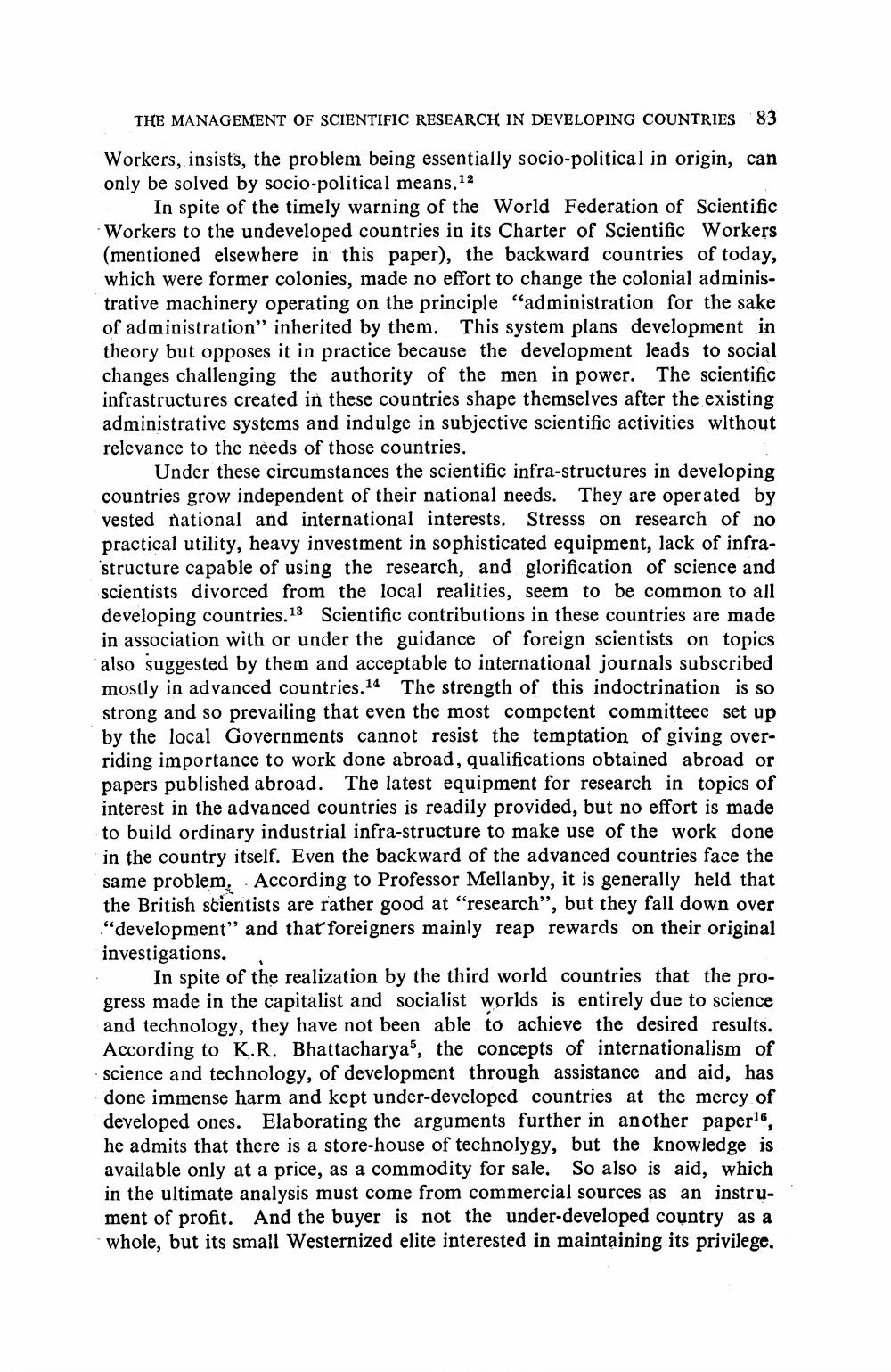________________
THE MANAGEMENT OF SCIENTIFIC RESEARCH IN DEVELOPING COUNTRIES 83 Workers, insists, the problem being essentially socio-political in origin, can only be solved by socio-political means. 12
In spite of the timely warning of the World Federation of Scientific Workers to the undeveloped countries in its Charter of Scientific Workers (mentioned elsewhere in this paper), the backward countries of today, which were former colonies, made no effort to change the colonial administrative machinery operating on the principle "administration for the sake of administration" inherited by them. This system plans development in theory but opposes it in practice because the development leads to social changes challenging the authority of the men in power. The scientific infrastructures created in these countries shape themselves after the existing administrative systems and indulge in subjective scientific activities without relevance to the needs of those countries.
Under these circumstances the scientific infra-structures in developing countries grow independent of their national needs. They are operated by vested national and international interests. Stresss on research of no practical utility, heavy investment in sophisticated equipment, lack of infrastructure capable of using the research, and glorification of science and scientists divorced from the local realities, seem to be common to all developing countries. 13 Scientific contributions in these countries are made in association with or under the guidance of foreign scientists on topics also suggested by them and acceptable to international journals subscribed mostly in advanced countries. 14 The strength of this indoctrination is so strong and so prevailing that even the most competent committeee set up by the local Governments cannot resist the temptation of giving overriding importance to work done abroad, qualifications obtained abroad or papers published abroad. The latest equipment for research in topics of interest in the advanced countries is readily provided, but no effort is made to build ordinary industrial infra-structure to make use of the work done in the country itself. Even the backward of the advanced countries face the same problem, According to Professor Mellanby, it is generally held that the British scientists are rather good at "research”, but they fall down over “development" and that foreigners mainly reap rewards on their original investigations. . In spite of the realization by the third world countries that the progress made in the capitalist and socialist worlds is entirely due to science and technology, they have not been able to achieve the desired results. According to K.R. Bhattacharya', the concepts of internationalism of science and technology, of development through assistance and aid, has done immense harm and kept under-developed countries at the mercy of developed ones. Elaborating the arguments further in another paper16, he admits that there is a store-house of technolygy, but the knowledge is available only at a price, as a commodity for sale. So also is aid, which in the ultimate analysis must come from commercial sources as an instrument of profit. And the buyer is not the under-developed country as a whole, but its small Westernized elite interested in maintaining its privilege.




